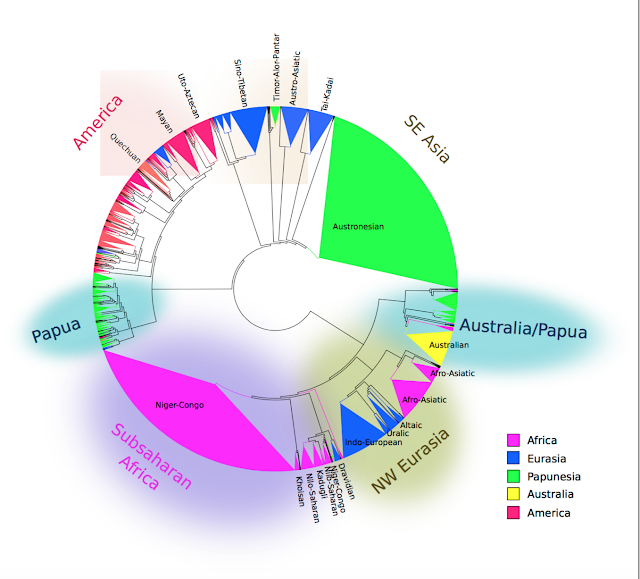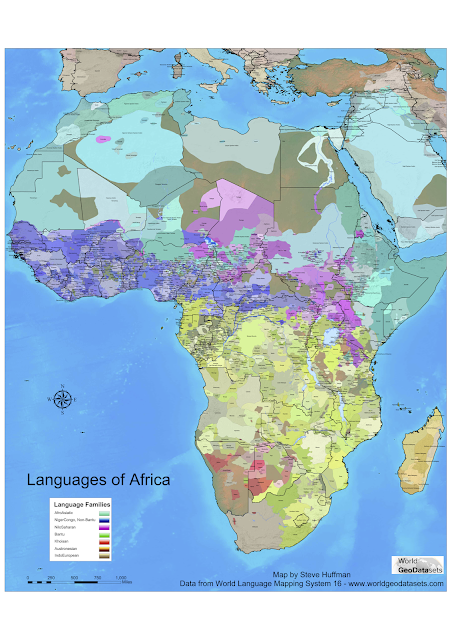Ways to stay updated with research news in linguistics
We've talked about this before, but I think it needs to be said again - get on mailing lists for linguistics if you want to be kept in the loop about things. Announcements of workshops, positions, conferences, edited volumes etc - they main information distribution channel for such news in linguistics is mailing lists. There are some other useful RSS-feeds and twitter personas that are good to keep track of as well, but do get on mailing lists first if you're keen to stay updated.
You don't have to stay updated you know, but I know that many readers of this blog are young researchers looking to start a career and for them this is useful.
Lingust List lists a lot of useful mailing lists(!), go pick things out there. If you're curious what's actually going on in the lists, go check the archives. Linguist List doesn't archive all lists they list, but a majority.
Twitter for research news? Isn't that where celebs and journalists go to shout at each other? Actually, there are research news - muddled in with the shouting. In a study in the journal Nature they found, based on quite few informants, that more scientists use twitter to share content than other social media platforms. Here are some that I follow and that post about research:
You don't have to stay updated you know, but I know that many readers of this blog are young researchers looking to start a career and for them this is useful.
Lingust List lists a lot of useful mailing lists(!), go pick things out there. If you're curious what's actually going on in the lists, go check the archives. Linguist List doesn't archive all lists they list, but a majority.
There's the overall lists LINGUIST and LINGLITE that are sort of the highway of information with a broad range, and then there's the more nisched small lists.
Filter!
And for the love of Greenberg, filter 'em. Don't come back complaining about being flooded unless you've tried filtering ^^! Basically what you want to do is throw everything in the "not important", "read" or "trash" by default and then pick out emails containing certain key words for your "important", "unread" or "non-trash" folder. You don't want to filter out those not to read, you want to filter in those you do want to read.
Here are the ways of setting up filters for some of the major email clients:
You might also want to turn them off when you're on vacation or something.
LINGTYP
LINGTYP
One of the most useful for those interested in language diversity is LINGTYP. However, it is restricted to only members of the Association for Linguistic Typology (ALT) . You can, however, still read the archives freely you just can't submit to the list as a non-member.
If you're interested, you could for example follow the recent discussions over Ethnologue's pay-wall that yours truly have been an active participant in.. :).
Mailing lists for descriptive linguistics and fieldwork
If you're interested, you could for example follow the recent discussions over Ethnologue's pay-wall that yours truly have been an active participant in.. :).
Mailing lists for descriptive linguistics and fieldwork
On this blog we're interested in cross-linguistic comparison and language-specific description. For the latter, there's a number of mailing lists for linguists and anthropologists devoted to specific families or areas. Unfortunately, there aren't any larger more general and popular mailing list for language description - at least not that we know of. If you hear of any good mailing lists like that, let us know :)!
There's the Resource Network for Linguistic Diversity's channels, but they're more focussed on language maintenance, teaching and revitalization. It's a great place, I think most linguistic fieldworkers should become members (especially if they're working on an endangered language).
There's the Resource Network for Linguistic Diversity's channels, but they're more focussed on language maintenance, teaching and revitalization. It's a great place, I think most linguistic fieldworkers should become members (especially if they're working on an endangered language).
Blogs
Good ol' blogs, still a great way to spread content. There's lots of linguistics blogs out there (we made a longer list here) but here are some that are more devoted to current research:
- Diversity Linguistics Comment
- Ethnoblog
- Languages of the World
- Yours Truly HWRG (self promotion, we know but still)
- Daniel Ezra Johnson's Blog
- Replicated Typo
- Phylogenetic Networks
- Language Log
Twitter for research news? Isn't that where celebs and journalists go to shout at each other? Actually, there are research news - muddled in with the shouting. In a study in the journal Nature they found, based on quite few informants, that more scientists use twitter to share content than other social media platforms. Here are some that I follow and that post about research:
- Martin Haspelmath
- Michael Dunn
- Fiona Jordan
- Simon Greenhill
- Bodo Winter
- Asifa Majid
- Grev Corbett
- Nick Enfield
- Linguist List
- Claire Bowern
- Seán Roberts
- Piers Kelly
- Daniel Ezra Johnson
- Rachel Nordlinger
- MPI for Psycholinguistics (Nijmegen)
- Centre for Language Dynamics (Australia)
- Surrey Morphology Group
If you liked this post..
- Tips when looking for PhD positions or other jobs in linguistics
- Soon-to-come research in linguistics
- 5 exciting linguistics conferences/workshops to keep an eye on this year [2015]
- Workshop in Jena on Austronesian linguistics, archeology and genetics
- The Closing Conference of the MPIEVA Linguistics Department - Diversity Linguistics: Retrospects and Prospects
and in general the tag "currentlinguisticresearch".



Comments
Post a Comment